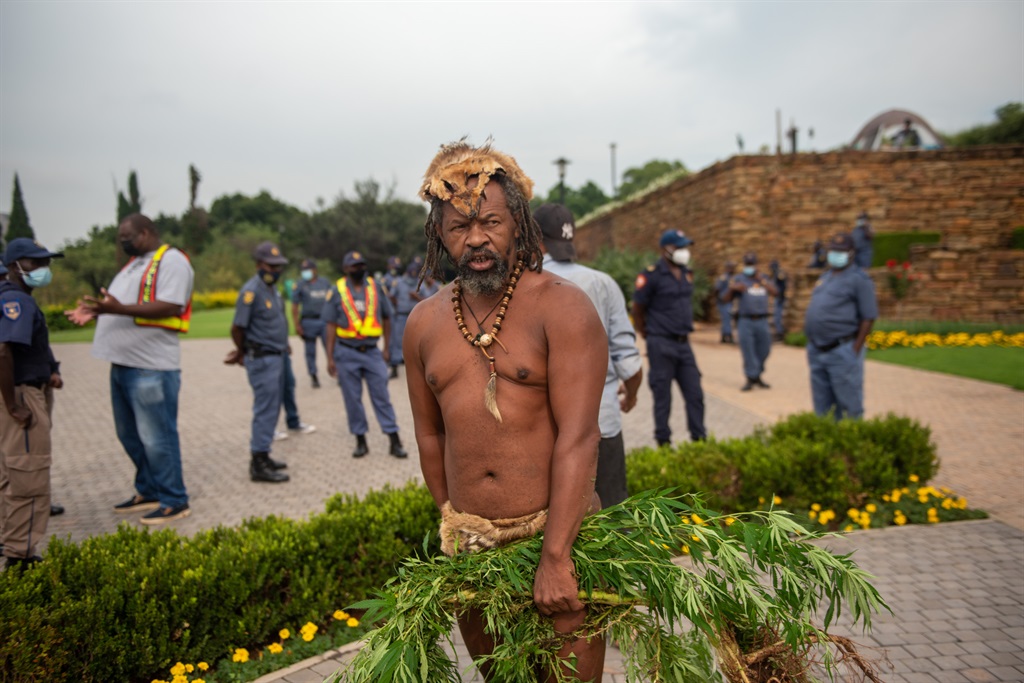
In his state of the nation address, President Cyril Ramaphosa mentioned cannabis and its economic potential while police were arresting people for cannabis-related offences on that very day.
This contradictory attitude from the state does not inspire confidence in the economic potential of this industry.
The 21st century saw a different attitude towards the plant as was prevalent in the 20th century. Multiple countries have decriminalised the use of the plant in one way or another. Lesotho and Zimbabwe recently decriminalised it for medicinal use.
In 2018 the Constitutional Court effectively decriminalised private use by adults, subject to state regulation. The result of this judgment is the Cannabis for Private Purposes Bill, currently before the National Assembly.
READ: Rural dagga growers call for state aid
The economic benefits of cannabis have long been studied. A report by New Frontier Data on the cannabis market in Africa mentions the massive economic potential this largely illicit market could have for African economies.
Even though South Africa is not the biggest market for cannabis, the $1.2 billion (R18 billion) in projected value for the domestic market is big in and of itself and could grow larger should there be regulatory coherence from the state.
He was speaking of plans to create jobs within the industry while his Cabinet ministers were engaged in court cases against companies like The Haze Club.
The president even went as far as mentioning those individuals in rural South Africa who have been growing the plant commercially for years (legacy cannabis farmers).
He mentioned these communities while his government, through the Cannabis for Private Purposes Bill as an example, set out to exclude them through onerous regulatory barriers.
Organisations such as Fields of Green for All have been at the forefront of the fight for the rights of cannabis users, and have been vocal about the potential for exclusion of legacy market participants and the broader poor when regulation is enacted.
In places such as Soweto, the illicit cannabis market has its own character and dynamics. The national cannabis master plan devised by the state as well as the bill before National Assembly do not fully consider the particular nature of the economics of a township.
READ: Ramaphosa’s Sona address: ‘No vision, no plan equals no jobs, no hope’
The regulatory jargon found in the bill of quantities for use and for commercial sale, as an example, will be troublesome to the existing illicit township market. The problem of yard sizes in former black areas, which influence the “private use” and cultivation of cannabis as a plant, is not considered by the bill.
The drafting of legislation for decriminalisation is happening while police are still treating possession and use as if there is not a different legislative paradigm on the horizon. This approach depresses potential investment especially by small businesses that are currently operating illegally.
Jurisprudentially, distinguishing between cigarettes and cannabis for purposes of criminality is nothing more than an arbitrary exercise, grounded in nothing else but a legal edict that says it is criminal.
Beyond the case permitting private use, the general decriminalisation of all cannabis-related activities ought to be the policy of the South African government.
The president is either unaware of the activities of his administration regarding cannabis or he was simply using rhetoric when speaking of the cannabis industry as a societal good through job creation.
None of these options bodes well for participants in the South African cannabis market, since there is no certainty in the space – a fundamental aspect of any investment activity. That attitude needs to change if any benefits of the industry, economic or otherwise, are to devolve to the average person.
Mthembu is a legal researcher at the Free Market Foundation. The views expressed in the article are the author’s and not necessarily shared by the members of the Foundation.




 Publications
Publications
 Partners
Partners











